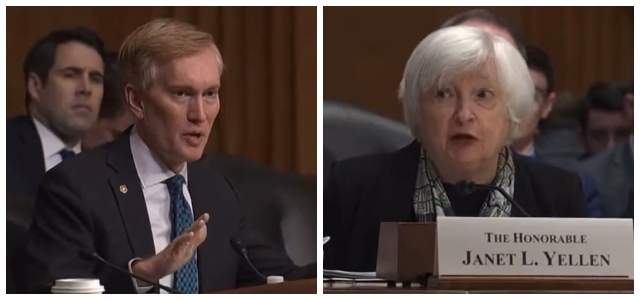 Parler
Parler Gab
Gab
Biden's spending proposition a direct challenge to House Speaker Kevin McCarthy
During a recent speaking engagement in Philadelphia, where he revealed his playbook for an expected 2024 re-election bid, Biden challenged his Republican critics on fiscal responsibility. He also declared his plans to cut U.S. deficits by nearly $3 trillion in the next decade by raising taxes on the wealthy ones who are earning more than $400,000 a year. "For too long, working people have been breaking their necks. The economy's left them behind – working people like you – while those at the top get away with everything," Biden told Pennsylvania blue-collar workers, a group he also targeted in his 2020 presidential campaign. Biden plans to fund higher spending and narrow the deficit by imposing a 25 percent minimum tax on billionaires and nearly doubling the capital gains tax from 20 percent, the White House said. According to Reuters, the budget is also a political statement that directly challenged Republican House Speaker Kevin McCarthy. The solon threatened to block any increase in the $31.4 trillion government debt limit unless Biden agrees to minimize his federal spending. (Related: NY Rep. Tenney: Biden should slash federal spending amid debt ceiling battle.) As a response, Biden announced that he is ready to meet with the speaker anytime. "Lay it down, tell me what you want to do. I'll show you what I want to do, see what we can agree on," the president said. McCarthy and other GOP lawmakers described Biden's budget plan as "reckless." Follow DebtBomb.news for more news on the ballooning U.S. government debt. Watch the video below where Attorney Kash Patel discusses Biden's defense budget proposal. This video is from the NewsClips channel on Brighteon.com.More related stories:
To increase or not to increase: Republicans and Democrats clash over $31.4 trillion debt ceiling. Economists: Over $31 trillion national debt could lead to slow-moving economic demise. US national debt hits $31 TRILLION for the first time. Treasury Secretary Yellen warns country will be financially insolvent by October if debt ceiling isn't raised. US will default on national debt by October, warns Treasury secretary.Sources include:
NYPost.com FoxNews.com Twitter.com Reuters.com Brighteon.comFairway grocers in NYC now using facial recognition to profile customers
By Ethan Huff // Share
Cryptocurrency traders pull $3 billion from stablecoin USDC in just 3 days
By Cassie B. // Share
WATCHED: CDC purchased location data of 55M phone users to track them during COVID-19 lockdowns
By Arsenio Toledo // Share
SF Bay Area to phase out heating appliances powered by natural gas
By Ramon Tomey // Share
Governments continue to obscure COVID-19 vaccine data amid rising concerns over excess deaths
By patricklewis // Share
Tech giant Microsoft backs EXTINCTION with its support of carbon capture programs
By ramontomeydw // Share
Germany to resume arms exports to Israel despite repeated ceasefire violations
By isabelle // Share










